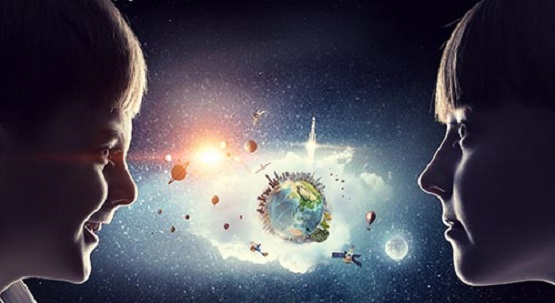International migration continues to grow on a scale never seen before, bringing with it social and cultural diversity, and inequalities in living standards. At the same time, the world has seen a sharp rise in terrorism, threats of war, populist politics and significant lack of confidence in leadership.
Survey after survey in recent years have pointed to the significant connections between strong academic achievement and arts learning. But can the arts build on its foundation of “universal language” and actually bring cultures closer together?
Professor Ada Aharoni, who lives in Israel and is the founding President of the International Forum for the Literature and Culture of Peace (IFLAC), believes that education has a critical role to play in the peace process. Intercultural communication, peace literature and a peace media can substantially help in healing the urgent ailments of our global village. However, Aharoni notes, “Peace and tolerance education should be given to the teachers and the parents too. If a child goes back home after class to parents that are intolerant and violent, the child, despite his peace and tolerance education at school, will be forcefully influenced by the values, customs and traditions of his parents.” Today’s youth are living in a globalized world, and a true global citizen according to Aharoni is, “a human guardian of all the people in our global village, and not only of the country she or he lives in.”

Profile image of cute girl and boy against night sky background. Elements of this image are furnished by NASA
Professor Ada Aharoni received the President Shimon Peres Award for Peace in 2012 for her peace research, her books and her work with IFLAC. She was nominated for the Nobel Peace Prize 2014.
Read the full article by David Wine here
CMRubinWorld
CMRubinWorld launched in 2010 to explore what kind of education would prepare students to succeed in a rapidly changing globalized world. Its award-winning series, The Global Search for Education, is a celebrated trailblazer in the renaissance of the 21st century, and occupies a special place in the pulse of key issues facing every nation and the collective future of all children. It connects today’s top thought leaders with a diverse global audience of parents, students and educators. Its highly readable platform allows for discourse concerning our highest ideals and the sustainable solutions we must engineer to achieve them. C. M. Rubin has produced over 550 interviews and articles discussing an expansive array of topics under a singular vision: when it comes to the world of children, there is always more work to be done.
Follow @CMRubinWorld on Twitter
For more information on CMRubinWorld
by David Wine
